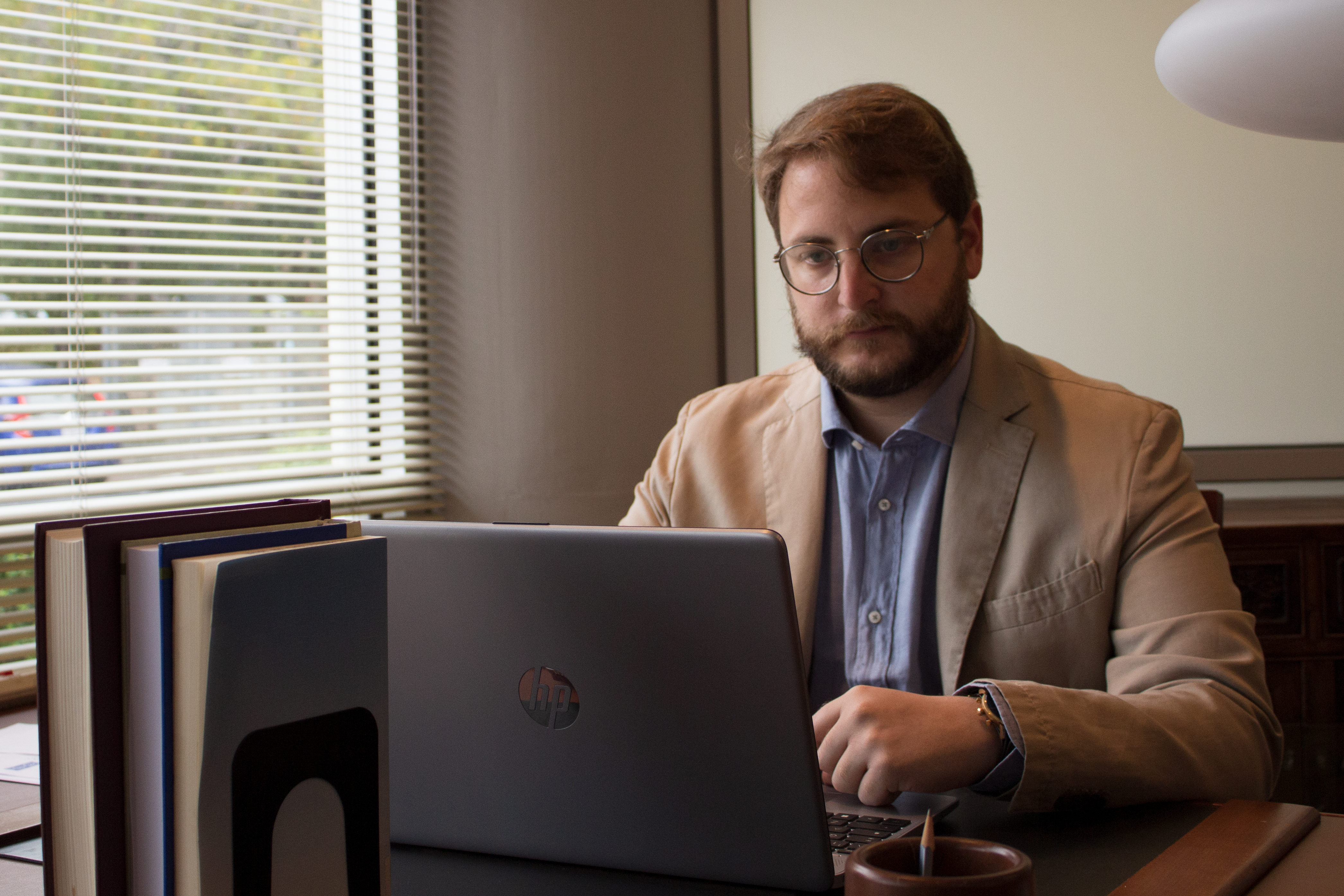Among the innumerable disruptions of recent years the COVID-19 pandemic upended David De Concilio’s initial plan to use his Robbins Collection Fellowship to complete his thesis. Instead, De Concilio was awarded his joint PhD through the University of St. Andrews, Scotland and the Università degli Studi Roma Tre, Italy before his visit to UC Berkeley. With his impressive degree in hand De Concilio instead used his month-long stay at the Robbins Collection in June 2022 researching his forthcoming book based on his thesis.

De Concilio is researching 12th century canonical collections of brocards, a legal literary genre used to concisely express a wider legal concept or rule. More specifically, he is looking into how this genre was developed in Northern France, and what it can tell us about the legal culture of schools during this period. “I am looking at Northern France and England because I believe the first collections of brocards originate from that milieu, in the context of cathedral schools, and from there they spread to the specialized schools in Provence and Italy.” His research challenges conventional understandings of how legal learning worked in Western Europe. “Legal innovations are usually believed to have come from Bologna and Northern Italy. To me, the reality seems much more complex, with a wide web of schools, masters, ideas, and books in constant circulation around the Latin world,” he said.
“While I was here I also finished a draft of an article on the 12th century scholastic literature on subjectiveness in human conduct, between law and theology (Soggettività e qualificazione del fatto. L’indagine del factum intrinsecum tra diritto e teologia nel XII secolo: due casi di studio e spunti per una ricerca),” said De Concilio. The abundance of secondary sources at the Robbins Collection played an important role in helping him finish the article. “I found a couple of books I was looking for that are not so easy to find in Italy, including the three-volume collection of Gérard Fransen’s works, Canones et quaestiones, and Lotte Kéry’s book Gottesfurcht und irdische Strafe.”
When De Concilio returns to Italy he will be resuming his work at the University of Padua as a member of the research project Migrating Commercial Law and Language, Rethinking Lex Mercatoria (11th-17th Century), abbreviated as MICOLL. The project aims to analyze the development of commercial law through historical linguistics, looking at commercial letters, contracts, and statutes. They are looking at Venice in particular, since for several centuries it was practically a mandatory stop for traders coming from the East before moving on to other ports or trading hubs. The project seeks to answer whether merchants were using the same legal terms in different places, and if those terms had the same meaning, if so. The research team is focusing on the 11th century to the beginning of the modern period, when Venice was no longer the center of global oceanic trade. As a part of the project, the research team will create a glossary of medieval commercial law terms and an interactive digital map of the land routes that connected Venice to Northern Europe and the Tyrrhenian Sea.
“My time at the Robbins Collection was great, and so was the help all of the staff provided,” De Concilio said. “I look forward to having an opportunity to come again.”